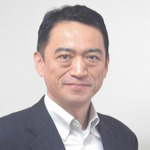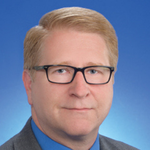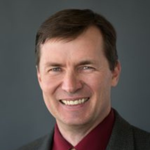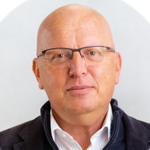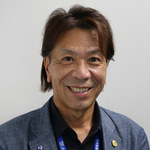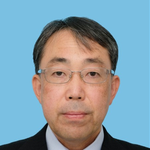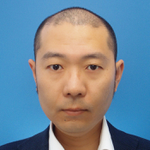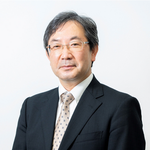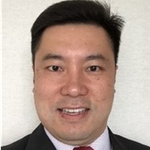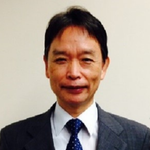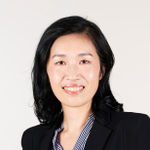- Registration
- Opening Declaration
Yoji Sato - Opening Remarks
Glenn Wright - Keynote Lecture 1: Achieving Consistent Scalable Low-cost Production of High-Quality Living Therapeutic Cells
Sean PalecekThe Center for Cell Manufacturing Technologies (CMaT) is an academic-industry-government partnership to advance the manufacturing of living cells for therapeutic applications. CMaT focuses on developing innovative new technologies to improve the safety and quality of therapeutic cells and to reduce the manufacturing cost, increasing accessibility to patients. I will discuss CMaT’s efforts to move cell manufacturing toward automated closed loop processes in three testbed cell types: engineered immune cells, mesenchymal stromal cells, and induced pluripotent stem cell-derived cells. I will present CMaT’s platforms using data analytic and machine learning models of imaging and -omics datasets to identify the critical quality attributes of these cell types, new sensors to monitor these CQAs, and technologies to scale and control the manufacturing processes.
- Keynote Lecture 2: Current Status, Issues, and Direction of Regenerative Medicine Products in Japan
Tomonori Nakayama
Division Head of Medical Device Evaluation Division
MHLW
Regarding regenerative medicine in Japan, the revision of the Pharmaceuticals and Medical Devices Law in 2013 established a system that allows conditional and time-limited approval to be applied to a new category of “regenerative medicine products,” which is expected to be put into practical use at an early stage. As a result, 17 products (as of the end of March 2023), which are included in the regenerative medicine product category, have been approved in Japan, including 4 products that have received conditional and time-limited approval. In the future, it is expected that innovative regenerative medicine products will be put into practical use. - Lunch Break
- Session 1: Sterility, Part I
Richard Denk•Yasuhito Ikematsu - Efforts by PDA-Japan Chapter for the Practical Use, Dissemination, and Development of Rapid Microbiological Methods (RMM)
Mitsuo MoriThe Aseptic Product GMP Committee of PDA-Japan Chapter has been leading Japan in research and publication on Rapid Microbiological Methods (RMM) continuously and vigorously for about 13 years since 2010 to date. With the release of PIC/S GMP Annex 1 revision 1 in September 2022, this technology, which contributes to improving the quality of pharmaceutical products, is expected to attract even more attention and to expand its practical use globally. In light of the above, some of the research results of the committee, including case studies for the introduction of RMM, will be explained.
- Coffee Break
- Session 1: Sterility, Part II
Richard Denk•Yasuhito Ikematsu - Contamination Control Strategy and Rapid Microbiological Methods in PIC/S GMP Annex 1 and Annex 2A
Yasuhito IkematsuThe PIC/S GMP Annex 1 Revision 1 has been released in September 2022, and pharmaceutical and regenerative medicine manufacturing facilities will have been required to develop and implement a Contamination Control Strategy (CCS). Rapid Microbiological Methods (RMM) are effective as a powerful tool for CCS implementation, and a reliable assurance of microbiological contamination control must be established by setting up a rational and effective environmental monitoring program and evaluating its effectiveness. Here, we present the concept of CCS in PIC/S GMP Annex 1 and 2A and the importance of RMM, and introduce several efforts to revise the chapter of RMM in the Japanese Pharmacopoeia.
- Strategies and Practical Examples to Ensure Sterility of Cell-Based Health Care Products
Tetsuya KarinoIt is extremely difficult to establish sterility assurance by terminal sterilization for biological medical products such as cell-based health care products due to their product characteristics. Therefore, these products must be manufactured using aseptic processing, and an aseptic processing environment must be established and maintained to guarantee sterility in each process.
In particular, aseptic processing environments that require intervention by operators, such as biosafety cabinets, ensure sterility by identifying and controlling the risk of contamination posed by the activities of operators.
This study presents an example of a microbiological contamination risk assessment and associated strategic measures and controls under the condition of a specific cell processing process using a biosafety cabinet. - Panel Discussion and Q&A
Richard Denk•Yasuhito Ikematsu•Mitsuo Mori•Tetsuya Karino - Networking Reception
- Registration
- Keynote Lecture 3: PDA Points to Consider for the Engineering and Manufacturing of Cell & Gene “ATMPs”
Richard DenkThe preparation for the commercial manufacturing for Cell & Gene should already start at the development stage of a new novel therapy. This keynote speech will focus on the Points to Consider for the Engineering of the commercial manufacturing of Cell & Gene. Considering equipment and room layout, GMP requirements, disposable technologies, modern technologies like robotics, cleaning and how to work with higher Biosafety Level 2 requirements.
- Session 2: Process
Masahiro Kino-oka - The Role of Virus Filtration in Achieving Virus Safety of Cell and Gene Therapy Products
Tomoko Hongo-HirasakiIn recent years, the development of cell and gene therapy products has accelerated, and several products are already in use in the medical field. While viral safety is an important quality item in the safety of these products, there are cases in which clearance processes are not effective in the manufacture of some products and need to be considered. ICH Q5A, the viral safety guideline for biopharmaceuticals, has been revised to reflect technological advances, and the draft revision was released in October 2022, with gene therapy products newly included in the Scope. In this presentation, the role of virus filtration in ensuring viral safety of cell and gene therapy products will be discussed with reference to the three basic principles of ICH Q5A, including the following study cases: (1) Application of virus filtration for contaminated virus clearance in the AAV manufacturing process for gene therapy products, and (2) Application of filtration treatment to raw materials used for product manufacturing further upstream as a risk mitigation strategy.
- Production and Quality Control of Clinical-grade iPSCs and Differentiated Cells Using an Automated Closed Culture System.
Masayoshi TsukaharaHuman iPSCs have great potential as source cells for cell therapy. We are investigating the production and quality control of human iPSCs for clinical use using an automated closed culture system in order to establish and culture human iPSCs stably at low cost. We believe that the use of a closed culture system eliminates the need for aseptic manipulation in a safety cabinet and reduces facility management costs. At the same time, we expect to stabilize production and reduce quality control costs by conducting in-process quality control.Until now, iPSCs have generally been established under 2D conditions, but we have succeeded in establishing iPSCs from whole blood under 3D conditions. This enables the establishment of iPSCs, expansion culture, and differentiation under 3D conditions in a closed culture system, and is expected to bring us closer to the realization of low-cost cellular medicine. In this presentation, I will discuss the characteristics of 3D-iPSCs and the 3D culture process, as well as the challenges and expectations for the closed culture system.
- Introduction and Process & Quality design for Alofisel Manufacturing Facility in Japan
Seitaro MizukamiAlofisel® Injection is a suspension of expanded allogeneic (donor-derived), adipose-derived mesenchymal stem cells (eASC) , which was approved in Japan in Sep 2021 as the first cellular & Gene Therapy product in Takeda Japan. It has been supplied to patients in Japan since 2022. Alofisel Injection is expected to contribute to the improvement of QOL of patients as a therapeutic product for perianal fistulas in Crohn's disease. I would like to introduce the facilities introduction and tech transfer and validation for this product into Japan, and process & quality design for newly introduced isolator.
- Lessons Learned from Clinic to Commercialization for Cell and Gene Therapy Product
Sang YoonBuilding a C> startup company for the first approved Allogeneic Cell Therapy product and separately a CDMO business comes with lessons learned that can benefit others on a similar journey. The lessons learned can help other C> companies accelerate their success to scale up and to commercialize their C> product. Also, he will provide unique and fresh insights from a leadership and culture perspective, to improve employee engagement and retention in a highly competitive talent market for C> professionals.
- Panel Discussion
Masahiro Kino-oka•Tomoko Hongo-Hirasaki•Masayoshi Tsukahara•Seitaro Mizukami•Sang Yoon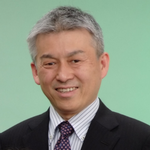
Masahiro Kino-oka
Professor, BioProcess Systems Engineering Lab., Dept.Biotech., Grad. Sch. Eng. at Osaka University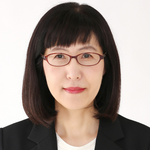
Tomoko Hongo-Hirasaki
Lead Expert on Virus Filtration at Asahi Kasei Medical Co., Ltd.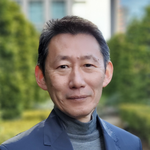
Masayoshi Tsukahara
Center for iPS Cell Research and Application at Kyoto University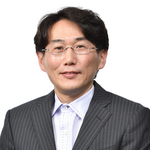
Seitaro Mizukami
Takeda Pharmaceuticals Company Limited
Sang Yoon
Senior Director of Quality at Samsung Biologics
- Lunch Break
- Session 3: Quality, Part I
Shingou Sakurai - What Does the ICHQ5A Revision Mean for your Cell & Gene Therapy Product?
Dr Edmund AngAny cell & gene therapy (CGT) manufacturing strategy requires extensive in-process testing to assess quality safety and efficacy of the intended final product. Many national regulatory agencies (i.e. FDA, EMA, NMPA, etc.) provide guidance on what type and degree of testing is expected, however, recommendations may not align between different national agencies. To address this, The International Council of Harmonisation (ICH) is a body of pharmaceutical regulatory experts tasked with harmonizing these quality, safety, and efficacy guidelines to benefit the global development of new pharmaceuticals while still maintaining safeguards to protect public health. The ICH’s quality chapter on viral safety testing for biological products (ICHQ5A) has recently been revised and now brings into scope most CGT products currently in production. While the revision is still in draft the final revision is expected in 2024 and has significant implications to the quality control testing accepted and expected for most CGT products. This presentation provides a description of (1) the CGT products now within scope of the ICHQ5A guidance, (2) where alternative technologies can replace traditional testing strategies, (3) the additional viral clearance studies some vector products are expected to complete, and (4) case studies on how these changes will influence the viral safety testing strategies for future CGT products.
- Regenerative Medicine Product Quality Review and Issues
Akiyoshi Kunieda
Office of Cellular and Tissue-based Products at PMDA
In reviewing the quality of regenerative medicine products for approval, it is necessary to confirm that manufacturers can continuously manufacture products with a certain level of quality. For this reason, management of raw materials and quality control are important points.
In this presentation, I will first classify regenerative medicine products into several categories according to their characteristics, show specific examples of inquiries in each review, and outline the items that are particularly controversial. - Coffee Break
- Session 3: Quality, Part II
Shingou Sakurai - PMDA's GMP/GCTP Survey and Risk Communication Activities
Kazuji Omori
Office of Manufacturing Quality for Drugs at PMDA - CQA Mining: A Systematic Approach for Identifying CQAs of Cell Therapy Products
Yoji SatoWhen a manufacturing process is changed without compromising the efficacy and safety of a cell therapy product during a clinical trial or at a later development stage, the comparability of the product quality between before and after the change must be demonstrated. The evaluation of comparability requires critical quality attributes (CQAs) of the product and specifications/test methods based on the CQAs.
However, compared to conventional pharmaceutical products, the cell populations that comprise cell therapy products are extremely complex, dynamic, and not necessarily homogeneous, making it extremely difficult to comprehensively identify all CQAs. In addition, not all cells in a cell therapy product may equally retain efficacy-related physiological functions, and it is possible that only a small subset of the cells may elicit efficacy. Therefore, for flexible change/improvement of the manufacturing processes of cell therapy products, it is useful to develop tools for identifying of CQAs or uncovering a cell subpopulation that is a true active ingredient.
In my talk, I will introduce a new approach we have recently developed for CQA identification, using human mesenchymal stem/stromal cells as an example, in which single cell transcriptome analysis is applied for "mining" a cell subset responsible for a specific cell function. - Panel Discussion and Q&A
- Invited Lecture: Challenging of Development for a Stable Process Based on Cell Manufacturability
Masahiro Kino-okaRegenerative medicine and cell therapy use the cell transplants which are manufactured, requiring interdisciplinary activities not only from medicinal and biological fields but also from manufacturing field. In cell production for regenerative medicine and cell therapy, process development is essential to improve the efficiency and stability of cell product quality. Unlike conventional pharmaceutical manufacturing,
The quality of cell products tends to be unstable due to the inherent characteristics of cells, which is an obstacle to mechanization and scale-up of manufacturing. Therefore, it is essential to develop a unique concept.
We proposed the discipline for cell production, which is ‘cell manufacturability’ to be defined as capability of cell manufacturing through the processes by bridging between biological and process aspects. And ‘Design for cell manufacturability’ is to be manufacturing design of cell-based products in such a way that they are easy to manufacture through simple, safe and efficient (cost-saving) process with stable product quality and secure to customer by considering transportation and preparation outside factory, acting practically the system optimization for the efficiency and stability of the process by understanding the requirement gap between biological and engineering aspects and reducing output fluctuation. This action will lead to stable process and cost saving of the products through the process simplification and governing the kinetics of cell behavior. - Summary and Closing Remarks
Richard Denk
